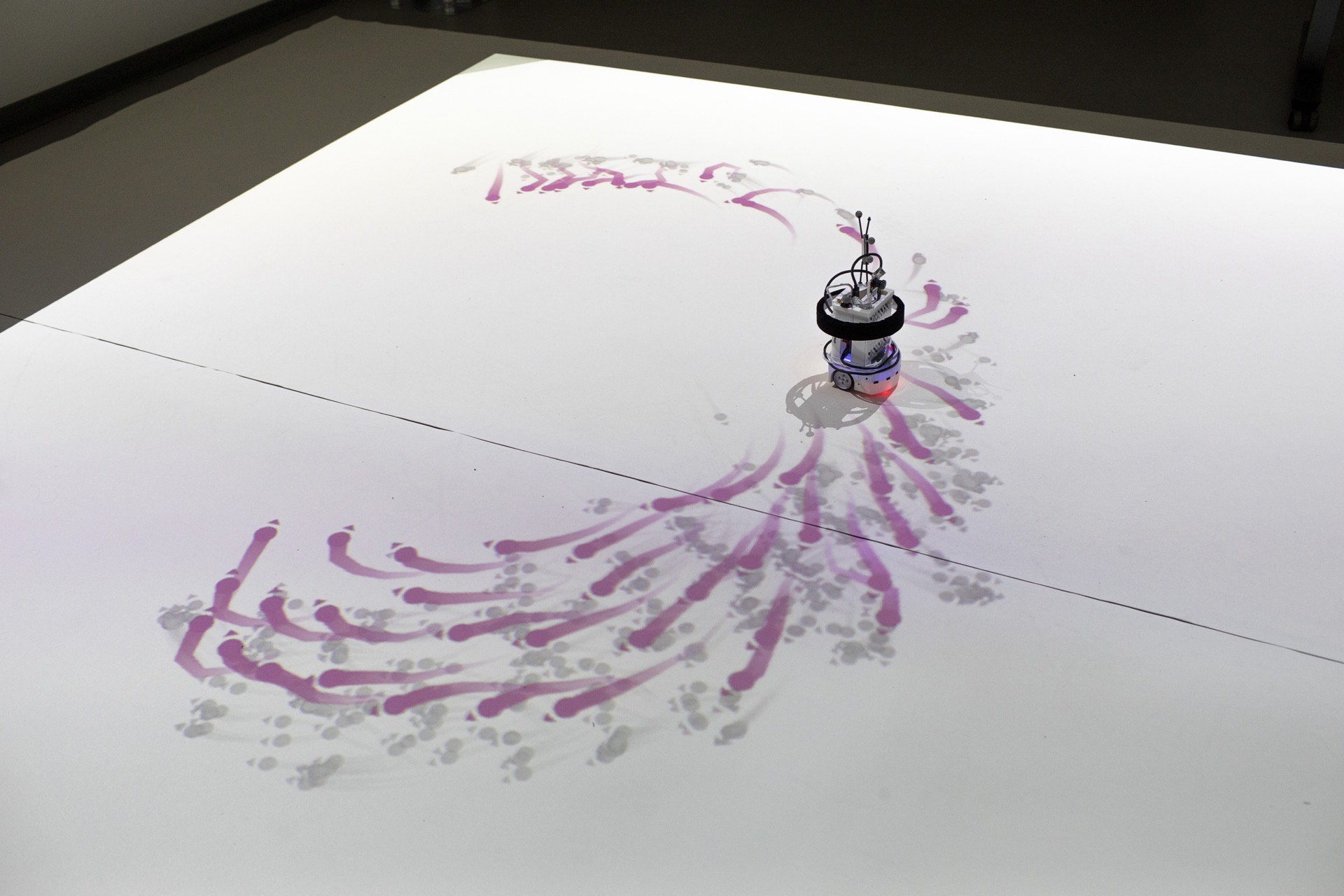Weighing personal and social information in cooperative problem solving

©SCIoI
A fundamental challenge in cooperative problem solving in human, animal or robotic groups is the integration of personal and social information. Relying too heavily on the former prevents the spread of information among group members, whereas relying too heavily on the latter may hamper profitable personal exploration and reduce collective performance. P34 investigates this key process by studying how collectives of different complexities dynamically balance personal and social information use across different levels of environmental complexity to find and extract spatially distributed resources (collective foraging) from their environment and by that to achieve collective intelligence.
The first aim of the proposed work was to develop a fully vision-based mechanistic modeling framework that allows us to investigate how cooperative agents integrate personal and social cues. We moved beyond previous work by considering how collective intelligence in spatial search can arise mechanistically from the individual-level cognitive integration of personal information and different local social cues provided purely by the available sensory input of the individuals (Preprint available: https://www.biorxiv.org/content/10.1101/2023.11.30.569379v2).
Secondly we investigated the performance of our framework across different environments and parametrizations i.e. across different individual strategies of information weighing in agents. According to the properties of the resource environment different strategies yield optimal results on the individual and on the collective level during collective spatial foraging. With our framework we investigated the performance of a wide range of strategies in different environments for virtual agents.
Furthermore, we proposed to investigate both human collective problem solving in matching experimental scenarios. Human groups are an ideal system to study cooperative problem solving, since human cooperation exceeds all other species in scale and range.
As the last module of our project, we plan to, according to what we have learned from simulations and experiments with human participants, synthesize collective foraging behavior on a group of Thymio robots. The engineered swarm will search for resource items in a simulated light-projection environment. Resource units will be created as light blobs that robots can find and “collect” together. To provide such a dynamic projected resource landscape for robots we will use techniques from augmented reality through our custom-made projection setup CoBe (Collective Behavior). By synthesizing natural behavior in real environments we can learn how physical constraints, unavoidable in the real world, further influence collective behavior.




